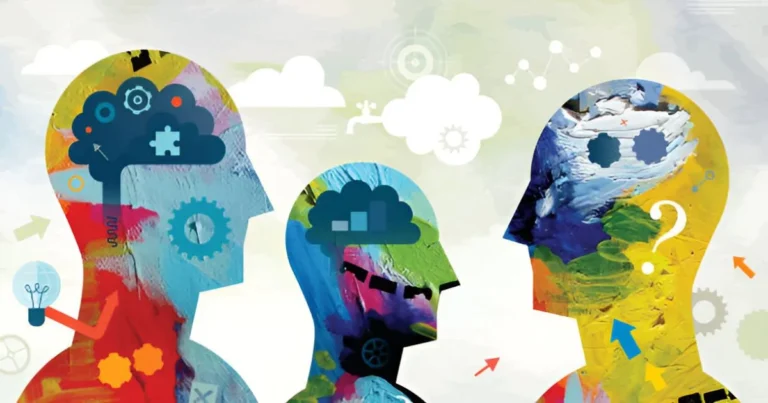The hidden power of words: The “Honey” enigma
Some oddities slip into everyday life like flashes of absurdity. In Morocco, for reasons no one has yet explained, the mere mention of the word “honey” can trigger uncontrollable outbursts in certain individuals a phenomenon I have personally witnessed. These are not frowns or looks of irritation, but sudden screams, insults, and sometimes even physical aggression toward anyone within reach. Though rarely discussed in academic circles, this curious reaction is surprisingly well known among many Moroccans.
It has nothing to do with allergies, inside jokes, or hidden slurs. “Honey” is an ordinary, pleasant-sounding word that, in these cases, acts like a verbal landmine. Even more baffling: the reactions appear without warning, as if some invisible switch flips the moment the word is spoken.
A single word can throw the mind off balance
One day, on a crowded bus, I witnessed a scene as brief as it was bizarre. A talkative passenger, seated near the driver, struck up a seemingly harmless conversation with another rider. Everything appeared normal until it became clear he was setting a trap. He knew the driver’s strange sensitivity to the word “honey” and, with a mischievous grin, carefully steered the conversation toward getting someone else to say it.
The reaction was immediate: the driver’s shoulders tensed, his face darkened, and despite a visible effort to remain composed, he erupted into a string of insults. It was not staged. It wasn’t exaggerated. It was a visceral, automatic response like a neurological reflex. A few passengers chuckled, suggesting this wasn’t their first time witnessing this strange “game” of verbal provocation.
Though uncommon in daily life, the phenomenon is not unheard of. Reactions vary shouting, sudden gestures, insults, even objects thrown but all share an involuntary and unpredictable quality. Something, it seems, escapes conscious control the moment the word is uttered.
🔗 Read also: The silent language of the brain: Decoding what words cannot say
When words trigger the brain: cross-cultural parallels
To date, no study has documented a reaction specifically linked to the word “honey.” Nevertheless, psychology, anthropology, and neuroscience all describe instances where a word, sound, or image can evoke powerful, immediate responses often without clear rationale.
Many cultures have what are known as taboo words or culturally charged triggers. These aren’t simply matters of etiquette; they are deeply rooted in belief systems. Among the Inuit, for instance, the name of a recently deceased person is avoided throughout the mourning period. In parts of West Africa, speaking the names of certain spirits or deities aloud is strictly forbidden for fear of provoking their wrath. Scottish actors refuse to say “Macbeth” backstage, convinced it brings misfortune. In Mediterranean communities, words tied to death or the devil are often avoided to prevent invoking bad luck.
These examples show how ordinary words can acquire such symbolic weight that they provoke fear or avoidance.
Behavioral psychology offers another angle: conditioned reflexes. A word associated with a powerful personal experience whether pleasant or traumatic can become a trigger. Once this association is formed, the response becomes nearly automatic, even years later. The word is no longer just a sound; it becomes a behavioral catalyst.
🔗 Explore further: Beyond words: can we think without words?
Phobias demonstrate the evocative power of language as well. In certain cases, the mere mention of a feared object not the object itself can provoke intense physical reactions: accelerated heart rate, muscle tension, or even aggressive or avoidant behavior. Here, language serves as a direct conduit to fear.
Neurology takes things a step further. In Gilles de la Tourette syndrome, some individuals experience episodes of coprolalia: sudden, involuntary outbursts of obscenities that are entirely disconnected from their current thoughts or emotions. These are not choices they’re uncontrollable discharges, reflexive in nature.
While the “honey” phenomenon doesn’t neatly fit into any of these categories, it shares a crucial trait: a seemingly trivial stimulus triggers a rapid, intense, and involuntary response. That commonality may offer a clue worth investigating.
Why honey? Dissecting the theories
No scientific explanation currently exists for this reaction. Only hypotheses and their limitations can be proposed.
One possibility is a personal trauma associated with honey. Perhaps those affected had a bad childhood experience: a bee sting, food poisoning, a traumatic memory. The problem with this theory is that personal traumas tend to produce varied triggers, unique to each individual. In this case, however, the trigger is consistently the same word: “honey.” This suggests something beyond isolated personal experience.
Another hypothesis could point to symbolic or cultural associations. In some cultures, certain foods or words carry spiritual or social taboos. But in Morocco, honey is associated with health, sweetness, and even blessing. There’s nothing inherently negative about it in the cultural landscape.
Could it be a conditioned reflex? Maybe the word was used repeatedly in mocking or aggressive contexts, causing it to acquire emotional charge over time. Still, that raises a crucial question: why this particular word? And how is it that individuals with no known connection share this reaction?
That brings us to a more intriguing, and perhaps more plausible, hypothesis: a neurological trigger. In some individuals, not only the word “honey” but also its image real, photographed, or mentally imagined can trigger a response. This suggests that the stimulus may be both auditory and visual, or that one modality automatically activates the other. Hearing the word could conjure the image; seeing the image could evoke the word. In both cases, the brain responds as if to a highly specific cue, triggering a motor or verbal reaction outside conscious control.
This points to a possible interaction between language areas, visual memory systems, and motor control regions of the brain. However, without direct research, all of this remains speculative. What does seem increasingly likely is that the answer lies more in neurology than in psychology or culture.
🔗 Discover more: The double-edged sword of communication: between understanding and manipulation
A challenge for neuroscience
A simple word. So ordinary it’s almost invisible. And yet, in certain minds, it detonates something raw insults, shouts, spontaneous movement.
What makes this phenomenon all the more compelling is its lack of clear cultural, symbolic, or medical context. It occupies a strange gray area: not frequent enough to be well documented, but not rare enough to be ignored by those who’ve seen it. It defies scientific categorization.
And yet, if this behavior exists, it has a cause. Whether neurological, cognitive, or otherwise, it deserves exploration. Understanding how a word or image can override voluntary control how a simple cue can provoke such a swift and precise response could open new doors into the workings of the brain.
For now, the “honey syndrome” exists mainly as anecdote, a curiosity exchanged through laughter and surprise. But it deserves to be more. It should become a subject of scientific inquiry, at the intersection of neuroscience, psychology, and anthropology.
To researchers, I pose a challenge: observe it, measure it, investigate it. Give this phenomenon a place in legitimate scientific discourse. Pull it out of the shadows of folklore and into the light of empirical study. Until then, it remains a curious mystery. But under the spotlight of research, it could become a key to understanding neural reflexes we’ve only begun to imagine.

Amine Lahhab
Television Director
Master’s Degree in Directing, École Supérieure de l’Audiovisuel (ESAV), University of Toulouse
Bachelor’s Degree in History, Hassan II University, Casablanca
DEUG in Philosophy, Hassan II University, Casablanca







